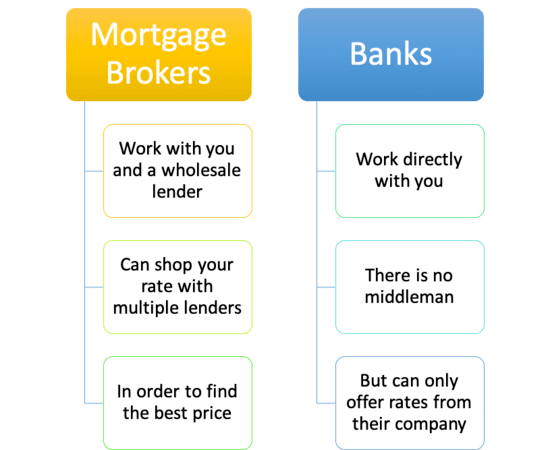Recognizing What a Jumbo Financing Entails and Just How It Varies From Standard Loans
Navigating the details of jumbo lendings exposes a funding option tailored for those venturing into high-value real estate, usually exceeding the limitations established by the Federal Real Estate Financing Company. In contrast, conventional lendings are frequently more accessible, gaining from support by entities such as Fannie Mae and Freddie Mac. The significant danger related to jumbo loans demands a lot more rigid certification demands, consisting of higher credit history and significant down repayments. As these two finance kinds accommodate varying monetary landscapes, understanding their subtleties is vital for making notified choices in the complicated globe of genuine estate funding. However how do you establish which path ideal fits your financial strategy?
Interpretation of Jumbo Loans
Jumbo loans are a sort of mortgage that exceed the adhering lending restrictions set by the Federal Housing Financing Agency (FHFA) These fundings deal with borrowers who require to fund buildings that are a lot more pricey than what conventional car loan limitations permit. The FHFA develops yearly adjusting lending limits, and any type of financing surpassing these thresholds is classified as a jumbo lending.
Normally, big financings are made use of in high-cost realty markets where home costs substantially surpass national standards, such as in metropolitan locations or high-end housing markets. As these lendings are not qualified for purchase by Fannie Mae or Freddie Mac, they bring inherent risks for lenders due to their bigger dimension and non-conformity (jumbo loan). As a result, lenders frequently enforce a lot more strict credentials standards for big car loans than basic conforming financings.
Customers looking for jumbo finances should generally show a solid monetary account, including a higher credit history rating, robust earnings verification, and considerable deposit, commonly 20% or even more. Furthermore, lending institutions may need extra comprehensive documents to evaluate the debtor's capacity to manage larger month-to-month settlements. Understanding the certain features of jumbo finances is crucial for prospective debtors browsing this sector of the mortgage market.
Traditional Finances Review
While big car loans deal with high-value residential or commercial property financing, traditional finances stand for the even more usual home mortgage alternative in the real estate market. These car loans are not insured or ensured by any type of government entity, such as the Federal Housing Administration (FHA) or the Department of Veterans Affairs (VA) Instead, they are backed by private lenders and stick to guidelines established by government-sponsored ventures (GSEs) like Fannie Mae and Freddie Mac.
Standard loans are typically offered with fixed or flexible passion prices and differ in terms of duration, commonly extending 15 to three decades. Debtors commonly like traditional fundings for their predictable monthly settlements, which can assist in long-lasting financial preparation. Furthermore, they are offered for primary homes, second homes, and financial investment properties, using flexibility to meet varied customer demands.

Trick Differences Between Fundings
At the leading edge of this decision-making process are jumbo loans and standard financings, each having distinctive attributes and serving various debtor requirements. Jumbo financings surpass the adhering car loan limits established by the Federal Housing Finance Firm (FHFA), which vary by area.

In addition, the down settlement requirements can differ significantly. Jumbo fundings generally call for bigger down payments, sometimes exceeding 20%, to alleviate risk. Standard finances, conversely, may enable lower down payments, with some programs accepting as little as 3% for qualified buyers.
Qualification Demands
Securing a jumbo lending involves meeting more rigorous certification needs contrasted to standard financings, mirroring the boosted danger to loan providers. These car loans, which exceed the conforming loan restrictions established by the Federal Housing Finance Firm (FHFA), are not look at these guys eligible for acquisition by Freddie Mac or Fannie Mae, therefore subjecting loan providers to greater economic danger - jumbo loan. Because of this, consumers need to demonstrate a high credit reliability and economic security
A robust credit report, generally 700 or greater, is vital for approval. Lenders additionally expect a reduced debt-to-income (DTI) ratio, often not going beyond 43%, making sure that customers can take care of considerable monthly repayments alongside various other financial responsibilities. A significant cash money reserve is usually required, frequently amounting to 6 months of mortgage repayments, to comfort lenders of the debtor's economic resilience.
Down repayment assumptions are also raised, regularly starting at 20% or more of the residential or commercial property's worth. While this is a guard for lenders, it necessitates significant in advance resources from consumers. Additionally, proof of constant, sufficient earnings is vital, typically verified through tax returns, W-2s, and recent pay stubs. Freelance people might require to offer additional documents, such as earnings and loss declarations, to confirm their revenue security.
Selecting the Right Funding
When selecting the most suitable loan option,Browsing the intricacy of jumbo car loans requires mindful factor to consider. With the wider variety of options readily available to those seeking jumbo loans, the decision-making procedure must involve a comprehensive evaluation additional resources of one's monetary profile and lasting goals. Unlike conventional financings, big car loans often feature more stringent requirements and differed rate of interest, which require thorough study and a clear understanding of one's monetary standing.
When picking between various jumbo financing offerings, it is imperative to examine the financing terms, including rate of interest, settlement schedules, and linked fees. Debtors should compare the prices offered by different lending institutions to ensure they safeguard the most desirable terms. Furthermore, comprehending the effects of repaired versus adjustable-rate home mortgages (ARMs) is essential, as each choice offers distinct benefits and threats depending on market problems and individual economic methods.
Engaging with an economic advisor or home loan broker can give valuable insights tailored to private conditions. These professionals can help in browsing the subtleties of big lendings, making sure that consumers are educated and equipped to select a finance that straightens with their financial objectives, ultimately helping with a smoother home-buying process.
Conclusion
In summary, jumbo fundings function as an economic tool for getting high-value residential helpful hints or commercial properties, requiring strict eligibility requirements and higher interest prices because of the raised danger for loan providers. Unlike traditional fundings, which satisfy FHFA limitations and may receive support from Fannie Mae or Freddie Mac, big finances need a minimum credit report of 700 and considerable deposits. Comprehending these distinctions is crucial for consumers in high-cost actual estate markets to figure out the most suitable loan alternative for their requirements.
The FHFA establishes yearly adjusting loan restrictions, and any type of lending surpassing these limits is classified as a big funding.
At the forefront of this decision-making procedure are jumbo lendings and standard finances, each possessing unique qualities and offering different debtor needs.Safeguarding a jumbo financing includes fulfilling much more rigorous qualification needs compared to standard car loans, mirroring the enhanced threat to lenders. Unlike traditional loans, jumbo financings typically come with more stringent requirements and varied passion rates, which require thorough research study and a clear understanding of one's economic standing.
Unlike conventional fundings, which adjust to FHFA limits and may get support from Fannie Mae or Freddie Mac, big lendings need a minimal credit rating rating of 700 and substantial down settlements.